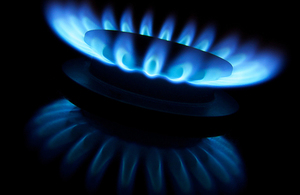CMA targets help for microbusinesses and customers on expensive deals
The CMA is finalising measures to help microbusinesses and households on the most expensive energy tariffs find better offers.

Gas
In its June report, following a 2-year investigation into the energy market, the Competition and Markets Authority (CMA) found that microbusinesses have been paying around £180 million a year more than they would in a more competitive market – with around 45% stuck on expensive ‘default’ tariffs.
At present when some microbusinesses come to the end of an agreement with a supplier, they can be transferred onto more expensive ‘rollover’ contracts. The CMA has begun consulting on a measure that, from next year, will stop suppliers using high exit fees to lock microbusinesses into these contracts. Suppliers will also have to publish their prices so that microbusiness customers can get a much better idea of what they should be paying for their energy – and what alternatives they have.
The CMA also found in its report that 70% of domestic customers could save as much as £300 a year by switching to cheaper deals.
The CMA is also consulting on one of the measures designed to help these customers, which will require suppliers to provide Ofgem with information about both domestic and microbusiness customers (including their energy usage) who have been on a default tariff for more than 3 years – these customers are among those paying the highest prices for their energy.
Ofgem will then make the database containing this information available, under strict controls, to competing suppliers so that they can provide cheaper offers direct to customers based on their actual energy usage. These offers will only be made by post, and customers will be able to opt out of the scheme whenever they want.
Ofgem is already working with consumer groups and suppliers on developing a small-scale pilot of the database, to start next year, before rolling it out nationally. This will allow it to test how the database works for both energy customers and suppliers, as well as dealing with any concerns – especially ensuring that communication to these customers is not excessive or confusing.
The CMA is also taking the next step in making suppliers allow the 700,000 – mainly Scottish – households on restricted meters (including total heat total control meters or dynamic teleswitching meters) to switch tariffs without their meters being replaced, after it found that some customers with these meters could save as much as £150 by switching to a cheaper tariff.
Roger Witcomb, Chairman of the energy market investigation, said:
The database remedy will bring cheaper price offers directly to those customers who have been paying too much for a long time. There are much better offers out there and we’re requiring the suppliers of those customers to make it easier for their competitors to get access to them.
We’re also tackling problems that can lead to very small businesses paying more than they should. They will be able to see all the prices that are available to them, and will no longer be locked into the most expensive contracts.
As well as these measures, the CMA is consulting on other draft orders resulting from measures announced in its June report. Last week, the CMA started consultation on the price cap for customers with prepayment meters. The final orders will be published before Christmas so these changes can happen next year.
The draft orders and all other information published in relation to the investigation are available on the energy market investigation case page. A short overview of the investigation is also available, along with a range of other materials for consumers and businesses explaining the investigation and its findings.
Responses on the draft orders are invited by 18 November 2016 to david.fowlis@cma.gsi.gov.uk and energymarket@cma.gsi.gov.uk.
Notes for editors
-
The CMA is the UK’s primary competition and consumer authority. It is an independent non-ministerial government department with responsibility for carrying out investigations into mergers, markets and the regulated industries and enforcing competition and consumer law. From 1 April 2014 it took over the functions of the Competition Commission and the competition and certain consumer functions of the Office of Fair Trading under the Enterprise Act 2002, as amended by the Enterprise and Regulatory Reform Act 2013.
-
The members of the Energy Market Investigation Group are: Roger Witcomb (Chairman), Lesley Ainsworth, Martin Cave, Malcolm Nicholson and Robert Spedding. The appointed investigation group act as the decision-makers during the market investigation and remedies implementation phases, and were chosen from the CMA’s panel members, who come from a variety of backgrounds, including economics, law, accountancy and business.
-
For more information on the CMA see our homepage or follow us on Twitter @CMAgovuk, Flickr and LinkedIn. Sign up to our email alerts to receive updates on markets cases.
-
Enquiries should be directed to Rory Taylor (rory.taylor@cma.gsi.gov.uk, 020 3738 6798).